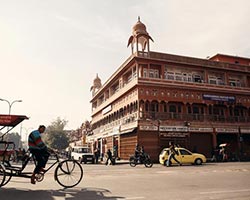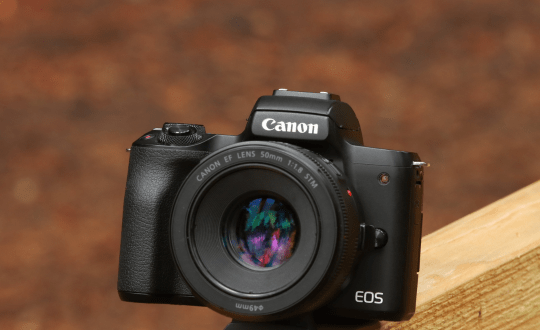Photographers can have several different career paths. If you know that you want to work as a professional photographer, but aren’t sure where you can actually find a job in the field, this guide is for you! Below, you can learn more about different photography careers.
Start your own photography business
For many photographers, the ultimate goal is opening your own photography business. If this is the route you decide to go, there are a number of things you need to do from the outset. You’ll first want to decide your niche, or type of photography you want to specialize in. You’ll also want to market your business and build a portfolio, website, and social media presence to help grow your business.
There are pros and cons of running your own photography business, of course.
Pros include:
- Creative freedom
- Flexible schedule
- Variety in work
- Potential for high earnings
- Personal fulfillment
- Ability to specialize
- Control over your career
Cons include:
- Unpredictable income
- High startup costs
- Marketing and business management
- Competitive market
- Time-consuming
- Client challenges
- Lack of benefits
- Pressure of consistency
Read more: How to Start a Photography Business (Guide)
Freelancing as a photographer
As a freelance photographer, you can make your own hours and work when you want to work. Freelance photographers are self-employed but usually have contracts with their clients that outline the terms of the job. A freelance photographer can work in any type of photography, such as events, editorial, travel, or stock photography.
When working as a freelance photographer, it’s important to attend networking events and engage in online groups and social media to gain clientele. Getting work can sometimes be difficult, especially if there’s a lot of competition in your area, so you want to find ways to make yourself known and set yourself apart. Your portfolio should be easily accessible to potential clients so they can see your talent and determine if they want to book with you.
Freelance can be a great choice if you need flexibility in your photography work, but it can also be challenging. Your income as a freelance photographer can be inconsistent at times, which means a second job may be necessary.
Read more: A Photographer's Guide to Making Money on Valentine's Day
Working for companies and corporations
A great option for photographers is working for a corporation or company. Areas you can work in include:
- Marketing departments
- E-commerce
- Fashion
- Real estate
- Product photography
When working for a company or corporation, you can benefit from the stable work environment and salary as well as health insurance. There is, however, less freedom when working for another company rather than yourself. You’ll need to collaborate, meet clients’ needs, work to deadlines, and handle professional equipment owned by the company.
Working for a company or corporation can be a great way to build up your skills and gain experience. You can find these kinds of jobs through job boards and sites, networking, and creative agencies.
Photography careers in marketing and advertising
Photography plays a vital role in brand building and content creation, making a photography gig at an advertising firm or in a marketing department a desirable option. Photography helps build visual identity for brand and can go a long way for boosting SEO and website traffic for content creation. You’ll likely take part in product shoots, promotional campaigns, and creating social media content. This means you’ll need skills like understanding brand messaging and technical expertise in post-production.
Some examples of the industries where you can get a photography job in marketing or advertising include fashion, food, and sales. A job like this will require collaboration with other areas of the organization, like designers, marketers, as well as clients. Working with brands and agencies can be a great way to build up your portfolio.
Read more: 5 Steps to Become a Professional Photographer
Careers in journalism and media photography
If telling stories through your photography is something that appeals to you, photojournalism can be for you. Photojournalists record news and, as a result, history through photographs. Some of the most important events throughout time have been captured on camera, many by photojournalists. Photojournalists work for newspapers, magazines, and other online media outlets. You’ll need to be a skilled storyteller and work well under tight deadlines as a photojournalist. Depending on where or what type of photojournalism you do, you’ll need to be able to adapt to different surroundings and cultures. Some photojournalists may be assigned to document dangerous, high-pressure environments, so this career is not for the faint of heart.
Media photography requires a lot of the same skills as photojournalism, but unlike photojournalism it allows for creativity and the photos can be and usually are staged. You’re still telling stories through imagery as a media photographer, but there’s more collaboration involved. The environment is also very different. You’ll do much of your work in a studio or on location in a controlled environment as a media photography.
Internships and a strong portfolio can help you get either of these jobs. Experience and education can help set you apart as well, and networking is always helpful.
Education and training for a successful photography career
There are many ways to gain education and experience for your photography career. You can get formal education through a degree or certification program, or take photography courses through an online school. If you want to go the informal route, you can teach yourself, seek mentorships or apprenticeships, participate in workshops, and get on-the-job experience.
When learning photography you should work on mastering both creative and technical skills. Equipment can change and trends can evolve, so you want to ensure you’re keeping up with any advancements. Continuous learning is important in any industry, and photography is no different.
Read more: How an Online Photography Course Works
Choose the photography career you want
With all these options, you can decide which type of photography career works for you. Some photography jobs are more creative than others, but they’re all great choices that can help further your career. If you want to brush up on your skills, consider enrolling in some photography courses and get on your way to the career you want.







